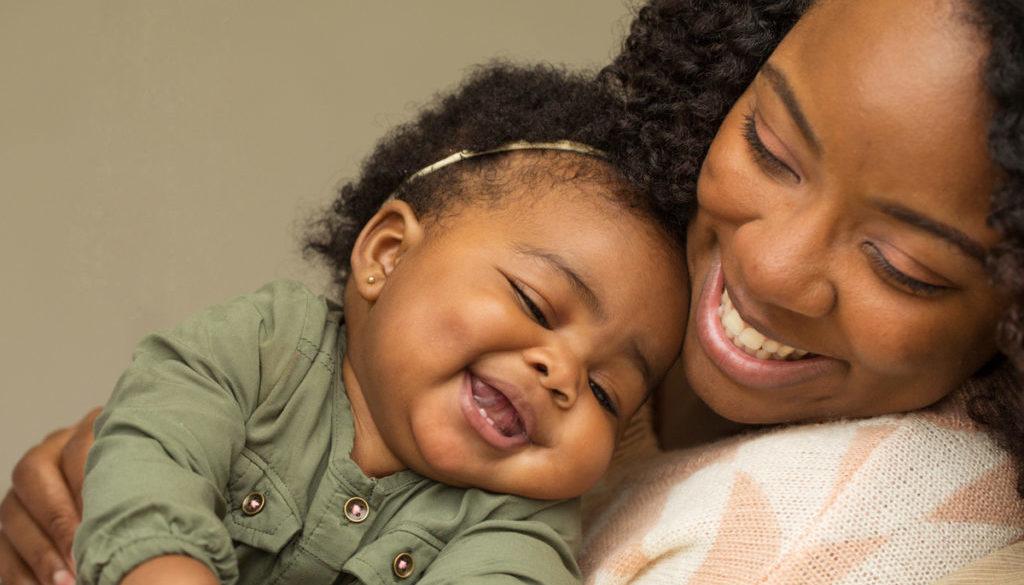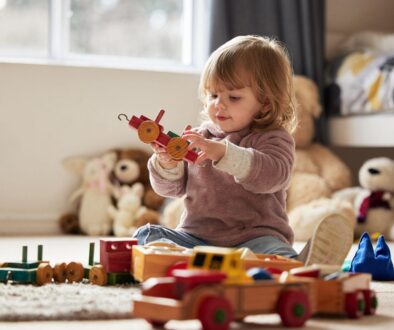Raising a Happy Child

When you ask parents what they want for their kids, what’s usually the most common reply? They want their children to be happy. Sometimes it’s hard to balance what’s best for children with what makes them happy — but the two don’t have to be mutually exclusive. Our society and everyday lives can leave many caregivers with limited time at the end of a day to focus on parenting skills, and even the thought of adding something else to an already full schedule can be completely overwhelming. Research shows that happier kids are more likely to turn into successful, accomplished adults who were raised learning how to create and sustain joy from their caregivers.
Forty Carrots Parenting Educators often share with families some simple ways to create happiness and self-fulfillment at home:
- Teach Them to Build Relationships: A child can begin with creating joy by generating a connection in the form of unconditional love from a caring adult in their lives. Teaching kids about building and nurturing relationships is important, it can start with encouraging kids to perform small acts of kindness to build empathy. This forms basic trust early on which is important for security, safety and the confidence to take risks.
- More Playtime: Many children today spend too much time rushing from one activity to the next and not enough time playing. When a child is playing, they are working and learning and being mindful; immersed in play. Play builds the imagination, teaches problem solving and cooperation, and generates joy amongst many other valuable developmental skills. Sadly, kids today spend less time playing both indoors and out… research has shown that over the last two decades, children have lost eight hours per week of free, unstructured, and spontaneous play… this dramatic drop in unstructured playtime is believed, in part, to be responsible for slowing kids cognitive and emotional development. Unstructured play is important as it helps kids to learn to self-regulate. Child-led, unstructured play (with or without adults) promotes intellectual, physical, social, and emotional well-being. Unstructured play helps children learn how to work in groups, to share, negotiate, resolve conflicts, regulate their emotions and behavior, and speak up for themselves.
- Praise Effort: Research is very consistent – Praise effort, not natural ability. Parents who overemphasize achievement are more likely to have kids with high levels of depression, anxiety, and substance abuse compared to other kids. When a child takes their first steps people cheer and take video, when a preschooler rides a bike for the first time, they want to do it again for others to see. Recognition leads to social connectedness (being validated/showing worth) which leads to motivation.
- Model Gratitude: Research shows that gratitude is linked to overall happiness in children by the age of 5 years old. This means that instilling gratitude in your kids at a young age could help them grow up to be happier adults. It is well known that grateful parents tend to raise grateful children. This is likely because kids learn to be grateful by hearing and seeing their parents experience gratitude.
Here are some ways you can model gratitude for your children:
-Say “Thank you.” Whether you say “thank you” to the cashier at the grocery store or you thank your child for cleaning their room, make sure you’re thanking people often.
-Share your own gratitude. Be intentional about sharing what you’re grateful for. Even when you have a rough day or something bad happens, point out that there’s still a lot to feel grateful for. Instead of complaining about the rain, talk about being grateful that the plants are being watered so you’ll have food to eat.
-Create dialogue about gratitude. Gratitude means showing thanks, being thankful and showing your appreciation for something, which is a great way to start the day, turn the day around, or to end the day on a high note! Create gratefulness dialogue often; ask your child, “What’s one thing about your day that made you happy?”
Keep in mind that kids don’t need to be happy all the time. They need to experience uncomfortable emotions too, like sadness, anger, fear, and disappointment. Use this opportunity to work on building your child’s “feelings language” and helping them express their emotions, while also accepting that ALL feelings are valid.
The best thing you can do to help raise happy kids is to give them a loving environment. Kids whose needs are met consistently and who are confident that they are loved and cared about are more likely to thrive, even when they face tough circumstances in life.
Upcoming Groups Highlight:
Join us in person at our Family Center for PIP Rainforest, Studio 40, Welcome to Our World and Partners in Movement!! Join us virtually for Carrot Talk and Partners in Play. For more information and to register for classes, please visit us at https://fortycarrots.com/parenting-program/classes/





